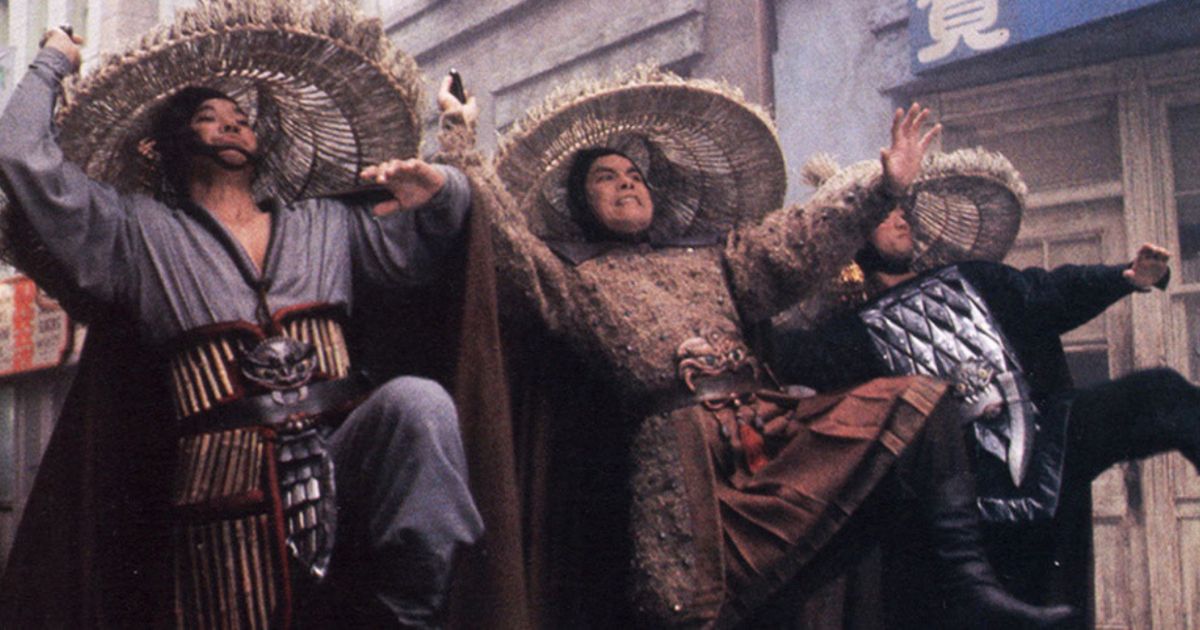- Joined
- Jan 17, 2010
- Messages
- 4,532
- Reaction score
- 5,495
PUBLISHED FRI, DEC 22 202312:20 AM ESTUPDATED 58 MIN AGO
Clement Tan@CLEMTAN
Evelyn Cheng@CHENGEVELYN

Tencent lost about $43.5 billion in market value on Friday after China surprised financial markets with a fresh set of rules aimed at curbing excessive gaming and spending.
The draft guidelines from China’s National Press and Publication Administration sank the Hong Kong-listed shares of Tencent, NetEase and Bilibili — among the largest online gaming-related counters in the world’s biggest online gaming market.
“The most recent regulatory move on the online gaming industry is the last thing the market was hoping to hear out of Beijing,” Brian Tycangco, an analyst at Stansberry Research told CNBC.
“While well intended, the move casts doubt on the viability of existing business models that mostly are built around incentive or rewards to attract users and boost loyalty,” he added.

Shenzhen-based Tencent, which owns WeChat and generated over a fifth of its third-quarter revenue from domestic online gaming, saw its shares tumble about 12.4% to close at HK$274, its lowest closing level since end-November 2022.
NetEase, 80% of whose third-quarter revenue came from domestic online gaming, plunged 24.6% to close at HK$122. Friday’s losses wiped out about 115.1 billion Hong Kong dollars ($14.7 billion) off NetEase’s market capitalization.
Bilibili, a social media site that derived 17.1% of its total third-quarter net revenue from Chinese domestic gaming, saw its shares slide 9.7% to close at HK$80.30, its lowest since November 2022 — shaving about 2.4 billion Hong Kong dollars ($307 million) off its market capitalization.
The Hang Seng Index closed down 1.7% on Friday ahead of a four-day holiday weekend, while the China Enterprises Index of the largest offshore mainland blue-chip names listed in Hong Kong ended down 2.3%.
“I’m confident we’ll get more clarity on these new rules in the coming days and weeks. But investors don’t want to wait around for the dust to settle. Better coordination between industry and regulators will benefit everyone in the future,” Tycangco said.

Daily login rewards will also be banned, while recharging limits must be imposed with pop-up warnings issued to users who display “irrational consumption behavior,” the National Press and Publication Administration said.
“These new measures do not fundamentally alter the online gaming business model and operations,” Vigo Zhang, vice-president of Tencent Games, told CNBC. “They clarify the authorities’ support for the online gaming industry, providing instructive guidance encouraging the innovation of high quality games.”

These latest draft rules come at a time, given the broader China technology industry was just emerging from a broader crackdown that started in late 2020.
Just over a year ago, Tencent secured rights to five of the 45 foreign game licenses approved by the National Press and Publication Administration in the first batch of approvals since Beijing’s crackdown on the video-games sector that started in August 2021.
At the country’s annual legislative meetings in 2021, China President Xi Jinping blamed addiction to online gaming for rising myopia and the adverse psychological well-being of the country’s young.

Later that year, the National Press and Publication Administration proposed that children under 18 be should not allowed to play online games for more than three hours a week, limiting them to legal game time only between 8 p.m. and 9 p.m. on Fridays, weekends and public holidays starting in early September.
In August, the Cyberspace Administration of China proposed rules to limit the smartphone screen time of people under the age of 18 to a maximum of two hours per day.
https://www.cnbc.com/2023/12/22/ten...et-on-new-china-online-gaming-guidelines.html
Clement Tan@CLEMTAN
Evelyn Cheng@CHENGEVELYN
- Beijing released draft guidelines aimed at curbing excessive gaming and spending Friday mid-morning ahead of four-day Christmas weekend holiday in Hong Kong.
- Tencent shares tumbled 12.4%, NetEase shares plunged 24.6%, Bilibili shares slid 9.7%
- The new measures don’t fundamentally change the online gaming business model and operations, Vigo Zhang, Tencent Games vice-president, told CNBC.

Tencent lost about $43.5 billion in market value on Friday after China surprised financial markets with a fresh set of rules aimed at curbing excessive gaming and spending.
The draft guidelines from China’s National Press and Publication Administration sank the Hong Kong-listed shares of Tencent, NetEase and Bilibili — among the largest online gaming-related counters in the world’s biggest online gaming market.
“The most recent regulatory move on the online gaming industry is the last thing the market was hoping to hear out of Beijing,” Brian Tycangco, an analyst at Stansberry Research told CNBC.
“While well intended, the move casts doubt on the viability of existing business models that mostly are built around incentive or rewards to attract users and boost loyalty,” he added.

Shenzhen-based Tencent, which owns WeChat and generated over a fifth of its third-quarter revenue from domestic online gaming, saw its shares tumble about 12.4% to close at HK$274, its lowest closing level since end-November 2022.
NetEase, 80% of whose third-quarter revenue came from domestic online gaming, plunged 24.6% to close at HK$122. Friday’s losses wiped out about 115.1 billion Hong Kong dollars ($14.7 billion) off NetEase’s market capitalization.
Bilibili, a social media site that derived 17.1% of its total third-quarter net revenue from Chinese domestic gaming, saw its shares slide 9.7% to close at HK$80.30, its lowest since November 2022 — shaving about 2.4 billion Hong Kong dollars ($307 million) off its market capitalization.
The Hang Seng Index closed down 1.7% on Friday ahead of a four-day holiday weekend, while the China Enterprises Index of the largest offshore mainland blue-chip names listed in Hong Kong ended down 2.3%.
“I’m confident we’ll get more clarity on these new rules in the coming days and weeks. But investors don’t want to wait around for the dust to settle. Better coordination between industry and regulators will benefit everyone in the future,” Tycangco said.

New guidelines, fresh setback
New draft guidelines released by China’s top gaming regulator require owners of online games to abstain from providing or condoning high-value or expensive transactions in virtual entities whether by auction or speculative activity, among other things.Daily login rewards will also be banned, while recharging limits must be imposed with pop-up warnings issued to users who display “irrational consumption behavior,” the National Press and Publication Administration said.
“These new measures do not fundamentally alter the online gaming business model and operations,” Vigo Zhang, vice-president of Tencent Games, told CNBC. “They clarify the authorities’ support for the online gaming industry, providing instructive guidance encouraging the innovation of high quality games.”

These latest draft rules come at a time, given the broader China technology industry was just emerging from a broader crackdown that started in late 2020.
Just over a year ago, Tencent secured rights to five of the 45 foreign game licenses approved by the National Press and Publication Administration in the first batch of approvals since Beijing’s crackdown on the video-games sector that started in August 2021.
At the country’s annual legislative meetings in 2021, China President Xi Jinping blamed addiction to online gaming for rising myopia and the adverse psychological well-being of the country’s young.

Later that year, the National Press and Publication Administration proposed that children under 18 be should not allowed to play online games for more than three hours a week, limiting them to legal game time only between 8 p.m. and 9 p.m. on Fridays, weekends and public holidays starting in early September.
In August, the Cyberspace Administration of China proposed rules to limit the smartphone screen time of people under the age of 18 to a maximum of two hours per day.
https://www.cnbc.com/2023/12/22/ten...et-on-new-china-online-gaming-guidelines.html

